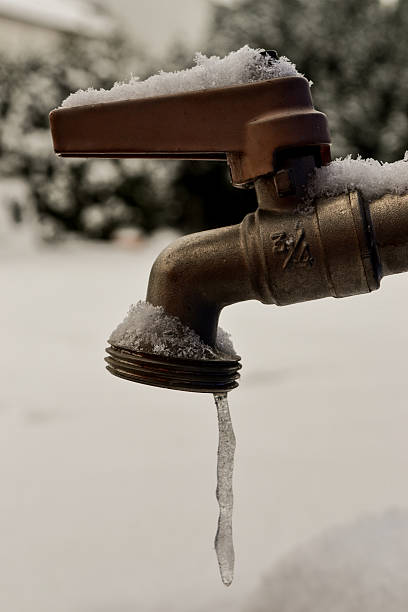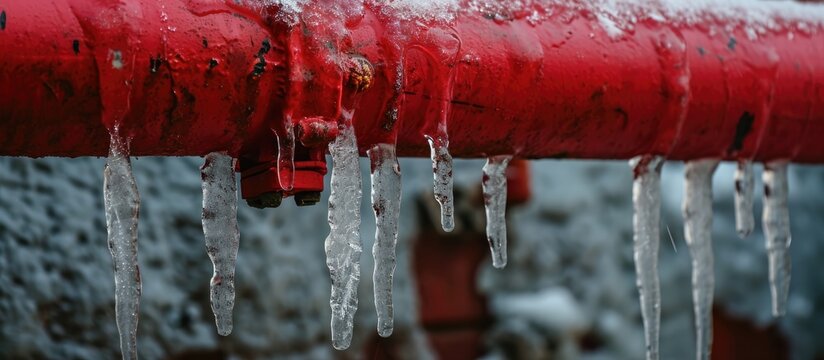Tips to Prevent Frozen Pipes in Cold Weather: Professional Guidance
Tips to Prevent Frozen Pipes in Cold Weather: Professional Guidance
Blog Article
They are making a few great points on the subject of How to prepare your home plumbing for winter weather overall in this great article underneath.

Winter can ruin your pipes, especially by freezing pipelines. Below's exactly how to prevent it from happening and what to do if it does.
Introduction
As temperature levels decline, the danger of icy pipelines increases, potentially bring about expensive repair work and water damages. Recognizing exactly how to prevent frozen pipelines is crucial for home owners in chilly climates.
Recognizing Frozen Pipelines
What creates pipes to freeze?
Pipelines freeze when subjected to temperatures listed below 32 ° F (0 ° C) for extended periods. As water inside the pipes ices up, it expands, putting pressure on the pipeline walls and possibly causing them to burst.
Dangers and problems
Icy pipes can lead to water system disturbances, residential property damages, and expensive fixings. Ruptured pipes can flooding homes and cause substantial structural damage.
Indicators of Frozen Piping
Identifying frozen pipes early can avoid them from breaking.
Just how to recognize icy pipes
Look for reduced water circulation from faucets, uncommon smells or noises from pipes, and visible frost on revealed pipes.
Avoidance Tips
Protecting at risk pipelines
Cover pipes in insulation sleeves or make use of warmth tape to safeguard them from freezing temperature levels. Concentrate on pipes in unheated or outside locations of the home.
Home heating methods
Keep indoor rooms adequately warmed, specifically areas with pipes. Open cabinet doors to enable cozy air to distribute around pipes under sinks.
Safeguarding Exterior Plumbing
Garden hoses and outdoor taps
Detach and drain yard hose pipes prior to winter. Set up frost-proof faucets or cover outdoor faucets with protected caps.
What to Do If Your Pipes Freeze
Immediate activities to take
If you believe frozen pipes, maintain taps available to eliminate pressure as the ice thaws. Utilize a hairdryer or towels taken in warm water to thaw pipes gradually.
Long-Term Solutions
Architectural adjustments
Think about rerouting pipes away from outside wall surfaces or unheated locations. Include additional insulation to attics, basements, and crawl spaces.
Updating insulation
Purchase top quality insulation for pipelines, attic rooms, and walls. Appropriate insulation assists maintain constant temperature levels and minimizes the threat of icy pipelines.
Verdict
Stopping frozen pipes calls for aggressive measures and fast responses. By recognizing the causes, indications, and preventive measures, house owners can secure their plumbing throughout cold weather.
6 Proven Ways to Prevent Frozen Pipes and Protect Your Home
Disconnect and Drain Garden Hoses
Before winter arrives, start by disconnecting your garden hoses and draining any remaining water. Close the shut-off valves that supply outdoor hose bibs and leave the outdoor faucet open to allow any residual water to drain. For extra protection, consider using faucet covers throughout the colder months. It’s also important to drain water from any sprinkler supply lines following the manufacturer’s directions.
Insulate Exposed Pipes
Insulating your pipes is an effective way to prevent freezing. Pipe insulation is readily available at home improvement stores and is relatively inexpensive. Pay close attention to pipes in unheated areas such as the attic, basement, crawl spaces, or garage. Apply foam insulation generously to create a buffer against the cold. You can also wrap your pipes in heat tape or thermostat-controlled heat cables for added warmth.
Seal Air Leaks
Inspect your home for any cracks or openings that could let in cold air. Seal any holes around the piping in interior or exterior walls, as well as the sill plates where your home rests on its foundation. Additionally, make sure to keep your garage door closed unless you’re entering or exiting. Leaving it open creates a significant air leak that can lead to frozen pipes.
Allow Warm Air Circulation
During cold snaps, it’s essential to allow warm air to circulate evenly throughout your home. Leave interior doors ajar to promote better airflow. Open kitchen and bathroom cabinets to help distribute heat consistently around the rooms. If you have small children or pets, be sure to remove any household chemicals or potentially harmful cleaners from open cabinets for safety.
Let Faucets Drip
A small trickle of water can make a big difference in preventing ice formation inside your pipes. When temperatures drop significantly, start a drip of water from all faucets served by exposed pipes. This continuous flow helps prevent the water from freezing. Additionally, running a few faucets slightly can relieve pressure inside the pipes, reducing the chances of a rupture if the water inside does freeze.
https://choateshvac.com/6-proven-ways-to-prevent-frozen-pipes-and-protect-your-home/

I have been very interested in How to prepare your home plumbing for winter weather and I really hope you liked the entire entry. Enjoyed reading our piece of writing? Please quickly share it. Help other people check it out. Thanks a lot for your time invested reading it.
Get Quote Report this page